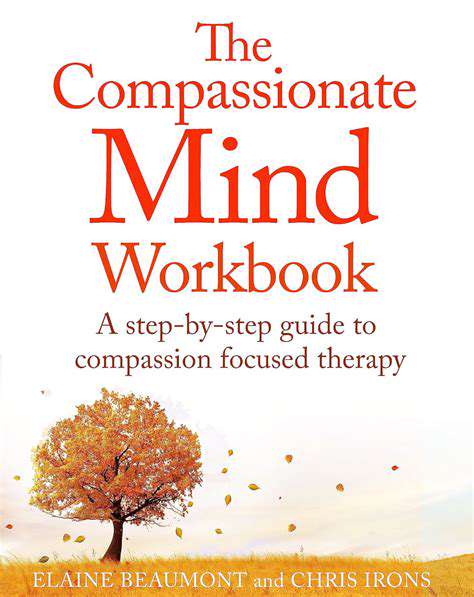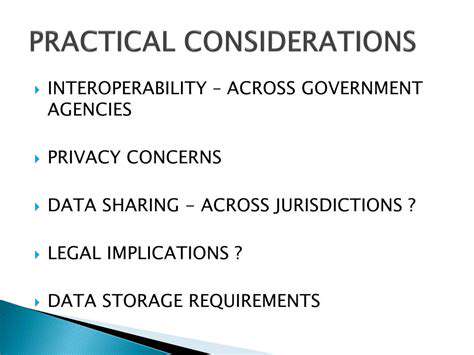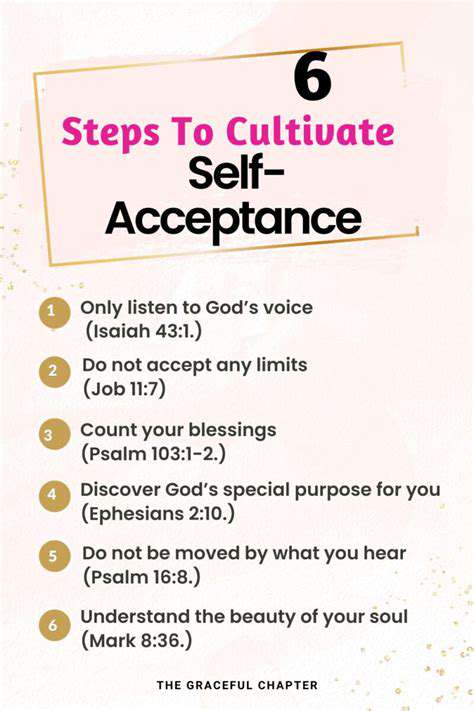Guide to Practicing Self Compassion as a Habit

Integrating Self-Compassion into Your Lifestyle
Understanding Self-Compassion
Self-compassion is a powerful tool for navigating life's challenges. It involves treating yourself with the same kindness, understanding, and support that you would offer a friend facing a difficult situation. This doesn't mean ignoring problems or avoiding responsibility, but rather acknowledging your imperfections and struggles as part of the human experience. Cultivating self-compassion allows for greater emotional resilience and a more positive outlook on life.
When you're struggling, self-compassion helps you move beyond self-criticism and judgment. It fosters a sense of connection to your inner world, promoting acceptance and understanding of your emotions, even the difficult ones. This compassionate approach allows you to approach setbacks with a more balanced and less reactive mindset.
Identifying Self-Critical Thoughts
A crucial first step in incorporating self-compassion is recognizing your self-critical thoughts. These negative internal dialogues often manifest as harsh judgments and unrealistic expectations. Pay attention to the language you use when reflecting on your actions and shortcomings. Identifying these patterns is the first step towards challenging them and replacing them with more compassionate self-talk.
Practicing Self-Kindness
Self-kindness involves treating yourself with the same empathy and understanding you would extend to a friend. When you make a mistake or experience a setback, instead of berating yourself, offer yourself the same support and encouragement. This might involve a gentle affirmation, a comforting word, or simply acknowledging your feelings without judgment.
Imagine a friend is going through a tough time. How would you support them? Now, apply that same compassion and kindness to yourself. This shift in perspective can dramatically alter your emotional response to challenges.
Cultivating Mindfulness
Mindfulness is essential for self-compassion. It involves paying attention to the present moment without judgment. By focusing on your thoughts, feelings, and sensations as they arise, you create space to observe them without getting swept away by them. This detached observation allows you to connect with yourself on a deeper level and foster a sense of self-acceptance.
Regular mindfulness practices, such as meditation or deep breathing exercises, can help you develop a more compassionate relationship with yourself. This practice can help you recognize and accept your emotions without getting lost in them.
Developing a Compassionate Inner Voice
Your inner voice significantly impacts your self-perception and emotional well-being. If this voice is consistently critical and judgmental, it can lead to feelings of inadequacy and low self-esteem. Cultivating a compassionate inner voice involves actively challenging these negative thoughts and replacing them with more supportive and understanding messages.
Setting Realistic Expectations
Setting unrealistic expectations for yourself is a common source of stress and self-criticism. Recognize that perfection is an unattainable goal, and that setbacks and imperfections are a natural part of the human experience. By accepting this reality and focusing on progress rather than perfection, you create a more supportive and compassionate environment for yourself.
Celebrate your accomplishments, no matter how small. Acknowledge your efforts and the progress you make, fostering a positive and realistic self-image.
Seeking Support When Needed
It's important to remember that practicing self-compassion doesn't mean you have to go through challenges alone. Seeking support from friends, family, or a therapist can significantly enhance your ability to cultivate self-compassion. Talking about your struggles and emotions with others can provide valuable perspective and validation.
Remember, reaching out for help is a sign of strength, not weakness. Building a support system can create a safe and encouraging environment to foster self-compassion and emotional well-being.
Read more about Guide to Practicing Self Compassion as a Habit
Hot Recommendations
-
*Guide to Managing Gout Through Diet
-
*Best Habits for Financial Well being
-
*How to Build a Routine for Better Mental Health
-
*How to Eat Healthy on a Budget [Tips & Meal Ideas]
-
*Guide to Practicing Self Acceptance
-
*How to Incorporate More Movement Into Your Day
-
*Guide to Managing Chronic Pain Naturally
-
*Guide to Building a Reading Habit for Well being
-
*Top 5 Weight Loss Supplements That Actually Work
-
*Best Exercises for Postpartum Recovery [Beyond Abdominal Work]











